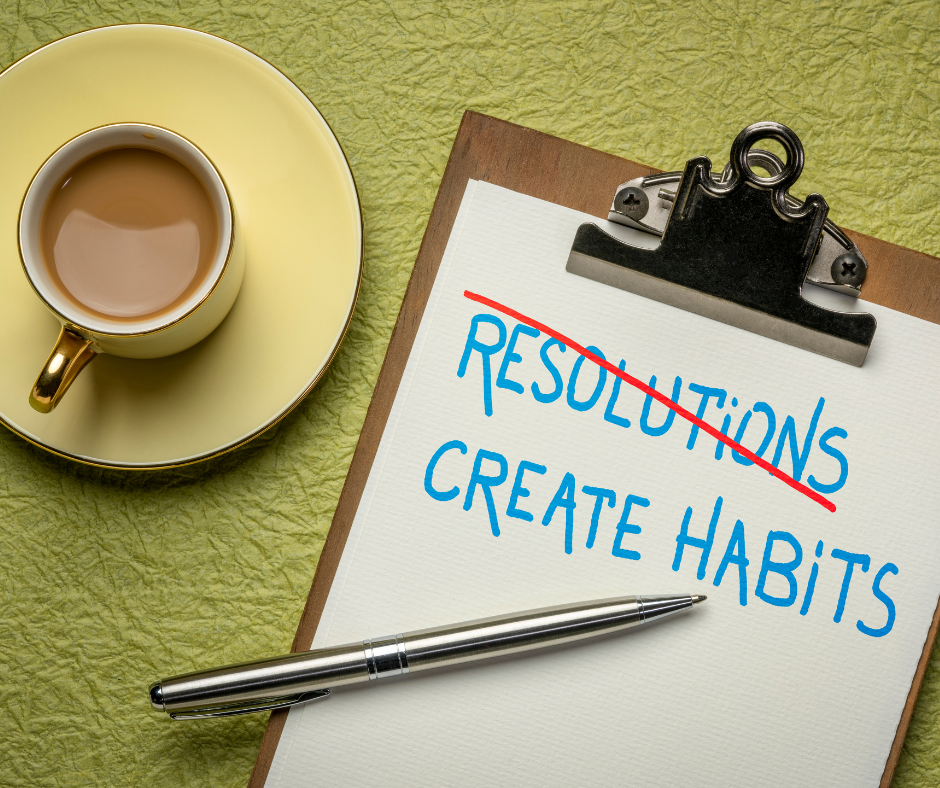The most common New Year’s resolution is to get healthier. And the new year is a perfect time to make changes. But, going all in once the calendar flips to 2024, without a gradual transition, can set you up for failure. After all, one of the biggest obstacles people face when tackling resolutions is starting off strong, but then motivation quickly dwindles within a few weeks. If we start by taking small steps, we can make the transition a more gradual one, making it easier to incorporate changes into our routine and stick with them.
1. Eat one more vegetable or fruit every day.
Adults should consume one-and-a-half to two cup-equivalents of fruits and two to three cup-equivalents of vegetables daily. Yet a survey in 2019 found that only about one in 10 adults met either recommendation. Following a dietary pattern that includes sufficient fruits and vegetables can help protect against some chronic conditions that are among the leading causes of mortality.
Focusing on adding just one more vegetable or fruit to your current intake is more realistic than trying to overhaul your whole diet. Maybe add a piece of fruit to your breakfast or afternoon snack. Snack on some raw vegetables instead of chips or cookies. Add another vegetable serving to lunch or dinner.
Here are some vegetable and fruit recipes you may want to try:
Tomato and Spinach Tortellini Soup
2. Get at least 10 minutes of exercise each day.
‘Exercise more’ is at the top of most New Year’s resolutions lists. But it can be difficult or overwhelming to know the best way to begin. Start small if you need to since every little bit of movement adds up. Just two hours of exercise per week can improve your heart health, lung capacity, blood pressure and weight. Put a positive spin on it and see exercise as a way to improve sleep, improve mood, become stronger and prevent diseases.
Not into exercise? That’s OK. Commit to moving your body for just 10 minutes a day, whether that be marching in place while cooking over the stove or going on a walk around the block. Lowering your expectations for exercise lessens the motivation needed to start and reduces the amount of willpower needed to power through a longer workout. You may be surprised how easy it is to turn that 10-minute walk into a 20 to 30 minute one once you get moving.
3. Replace one beverage with water each day.
An easy way to remember if you’re getting enough water is to drink half your body weight in ounces. For example, if you weigh 150 pounds, you should drink at least 75 ounces each day. Replace sugar-sweetened beverages with water to reduce calories and added sugars in your diet.
Set out a water bottle or a glass of water next to your coffee machine so that in the morning, before you take a sip of anything else, you’ll drink a glass of water. Before your day has even started you’ve accomplished something healthy for your body.
4. Eat more fiber.
Total dietary fiber intake should be 25 to 30 grams a day from food, not supplements. Currently, dietary fiber intakes among adults in the United States only average about 15 grams a day. That’s about half the recommended amount.
Fiber delivers a lot of health benefits:
supports weight loss
reduces cholesterol and blood sugar levels
lowers risk of cardiovascular diseases such as stroke, heart disease and more
lowers risk of diabetes
increases digestive and bowel health
fuels healthy gut bacteria
may lower risk of colorectal and breast cancer
Foods high in fiber include whole grains, beans, whole fruit and vegetables. A few recipes that are high fiber include:
Bite Size Banana Blender Oat Muffins
Mexican Barley Stuffed Peppers
5. Make a grateful list.
While a long to do list can add stress to your life, a gratitude list can actually reduce stress. Studies have shown that gratitude is good for your psychological health, and preliminary research is showing it may be good for your physical well-being as well!
Get in the habit by keeping a journal and writing down five to 10 things each day for which you are thankful.
Forge is delighted to partner with Laura Rutledge, MA, RDN, CSO, a Registered Dietician Nutritionist who focuses on oncology nutrition for during and after cancer diagnosis and treatment. For more information and recipes from Laura check out Nourishing Plate. You can find additional blogs from Laura on Forge’s blog!
